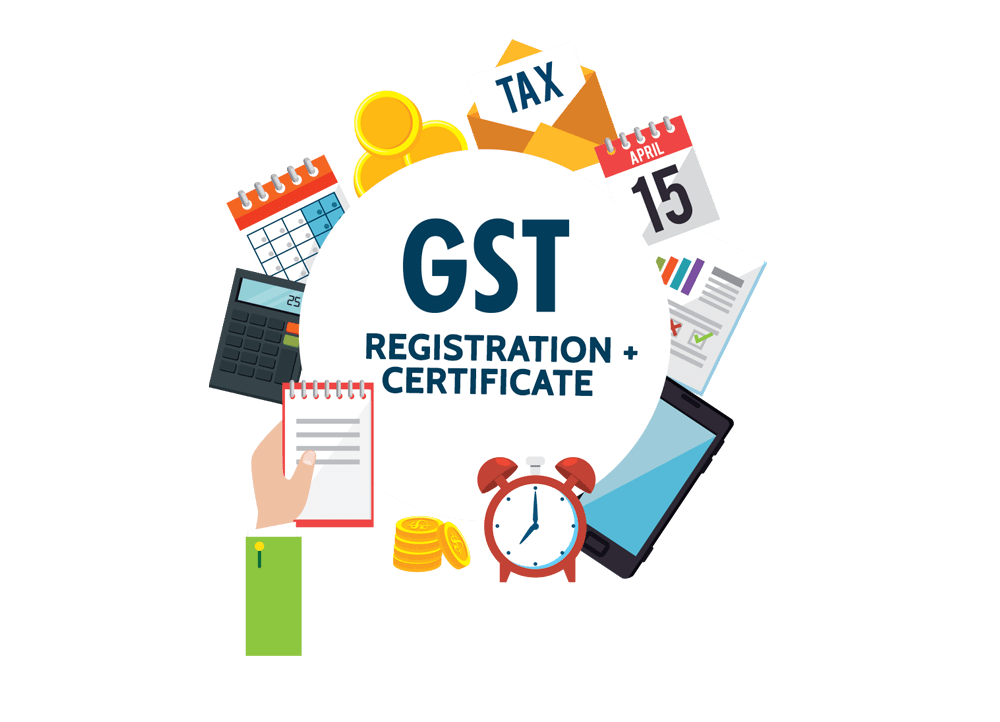CFO Account & Services: Your Relied On Partner for Hassle-Free GST Registration in Singapore
CFO Account & Services: Your Relied On Partner for Hassle-Free GST Registration in Singapore
Blog Article
Throughout: An Extensive Overview of GST Registration and How to Efficiently Register Your Company
Browsing through the complex procedure of GST enrollment can be an essential action for any service wanting to develop compliance and legitimacy in the marketplace. Why choose CFO Account & Services for GST registration in Singapore. From comprehending the basic ideas of GST to fulfilling the qualification requirements and collecting the essential paperwork, the journey in the direction of effective enrollment can frequently feel like a daunting task. With the best advice and insights, companies can enhance this procedure and unlock the advantages that come with being a signed up entity.
Understanding GST and Its Significance
Comprehending the Goods and Services Tax Obligation (GST) and its relevance is vital for businesses operating in economic situations where this tax system is carried out. By allowing organizations to claim input tax credit scores on the tax obligation paid on acquisitions, GST ensures that tax obligations are calculated just on the worth added at each phase of the supply chain.
Moreover, GST promotes conformity and openness in the tax obligation routine, minimizing tax obligation evasion and enhancing government income. It streamlines tax management and compliance for organizations by giving a typical system for tax filing and settlement. In general, a complete understanding of GST is important for organizations to efficiently navigate the complexities of the tax system and ensure conformity with the regulation.
Eligibility Criteria for GST Enrollment
To sign up for GST, organizations must meet specific eligibility criteria described by the tax obligation authorities. The main demand for GST registration is that the company's accumulated turnover exceeds the limit set by the federal government, which varies by state. Additionally, specific organizations, such as those included in inter-state supply of goods or services, informal taxed persons, and non-resident taxable individuals, are called for to register for GST regardless of their turn over.
Additionally, organizations entailed in supplying goods or solutions with shopping platforms are also mandated to sign up for GST, regardless of their turnover. Furthermore, businesses that were registered under the previous tax program, such as VAT, import tax task, or solution tax, should change their registration to GST. Abiding by these eligibility standards is vital for services seeking to abide with the GST guidelines and avoid any type of charges for non-compliance.
Documents Required for GST Registration
When making an application for GST enrollment, organizations have to guarantee they have all the needed documents in order to complete the procedure smoothly and effectively. The key papers required for GST registration consist of proof of service registration or unification such as the Certificate of Unification, partnership action, or enrollment certificate. In addition, services require to provide proof of address for the major business, which can be supported by files like an utility expense or a rental agreement.
Furthermore, files confirming the identity and address of the promoters or partners included in business, such as PAN card, Aadhaar card, or ticket, are essential for GST enrollment. Savings account statements or canceled cheques presenting the name of the company, address, and account number are also obligatory to verify the financial institution account information provided throughout registration.
Guaranteeing all the essential documents remain in order and conveniently offered will simplify the GST enrollment process and help companies avoid hold-ups or difficulties.
Online Registration Process for GST

After completing the type, supporting files require to be posted as per the standards offered. These documents usually consist of proof of company registration, address evidence, financial institution statements, and identification evidence of business owner. It is necessary to make sure that all documents are clear, valid, and posted in the specified layout to avoid hold-ups in the enrollment process.
When the application and records are submitted, services can track the status of their GST registration online. If there are no problems or added information needed, the GST enrollment certificate will certainly be released electronically, marking the effective conclusion of the online enrollment procedure.
Post-Registration Compliance and Tips

Furthermore, businesses should maintain appropriate publications of accounts, consisting of billings, accounting documents, and monetary declarations, to support the details supplied in GST returns. Regular audits and reconciliations should be performed to make sure information precision and compliance with GST laws. Businesses need to remain upgraded on any modifications in GST laws, rates, or conformity treatments to make essential changes immediately. Seeking professional help from tax obligation consultants or accountants can additionally aid services browse complex GST conformity demands successfully. By remaining positive and attentive in post-registration compliance, businesses can prevent penalties, preserve great standing with tax obligation authorities, and foster functional effectiveness.
Conclusion
Finally, the process of GST enrollment is important for companies to abide by tax policies and run moved here legitimately. By understanding the eligibility requirements, gathering the needed documents, and finishing the on-line registration procedure, organizations can effectively sign up for GST. When needed to guarantee smooth procedures., it is crucial to stay compliant with post-registration requirements and seek expert advice (Why choose CFO Account & Services for GST registration in Singapore).
Businesses that were signed up under the previous tax obligation regime, such as Barrel, excise obligation, or solution tax obligation, must transition their registration to GST. The crucial records required for GST enrollment consist of evidence of company enrollment or unification such as the Certificate of Unification, collaboration act, or registration certification.Upon effective completion of the GST enrollment process, services must quickly stick to post-registration conformity needs to maintain regulatory conformity and ensure smooth operations.In conclusion, the process of GST registration is crucial for companies to conform with tax obligation guidelines and operate legitimately. By recognizing the qualification requirements, gathering the required records, and finishing the on-line registration procedure, services can efficiently sign up for GST.
Report this page